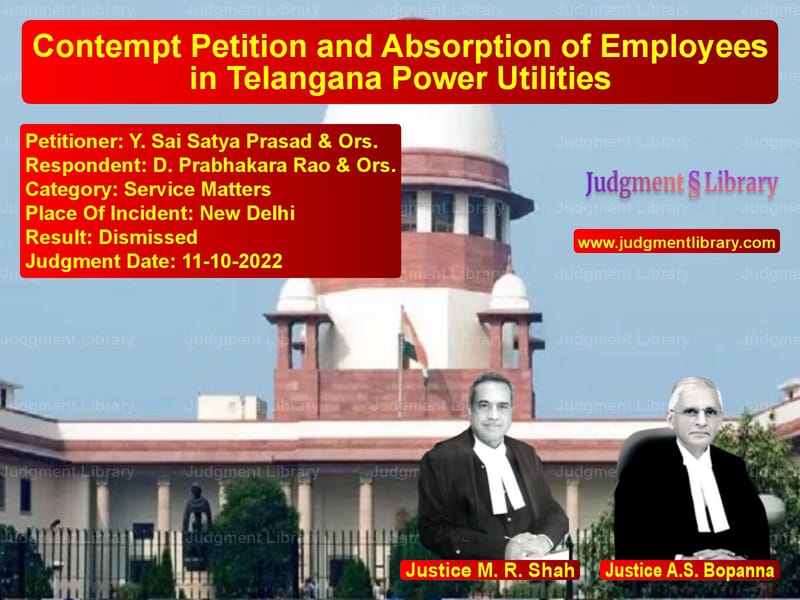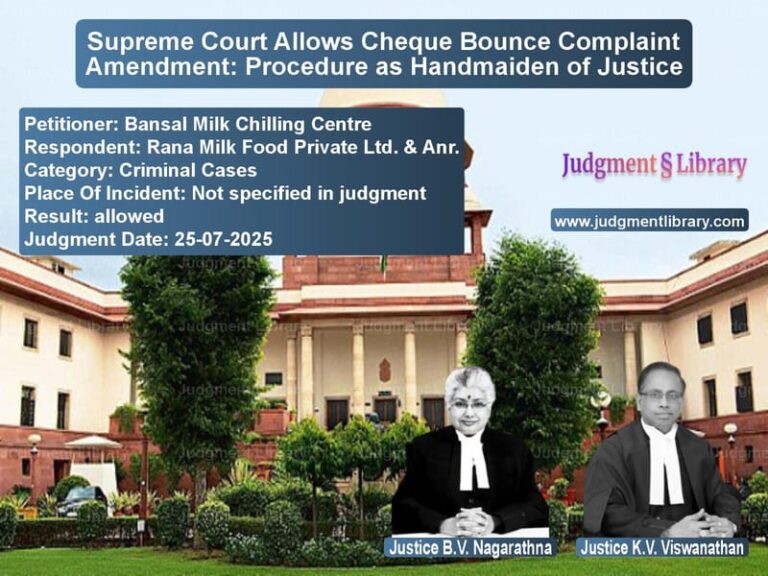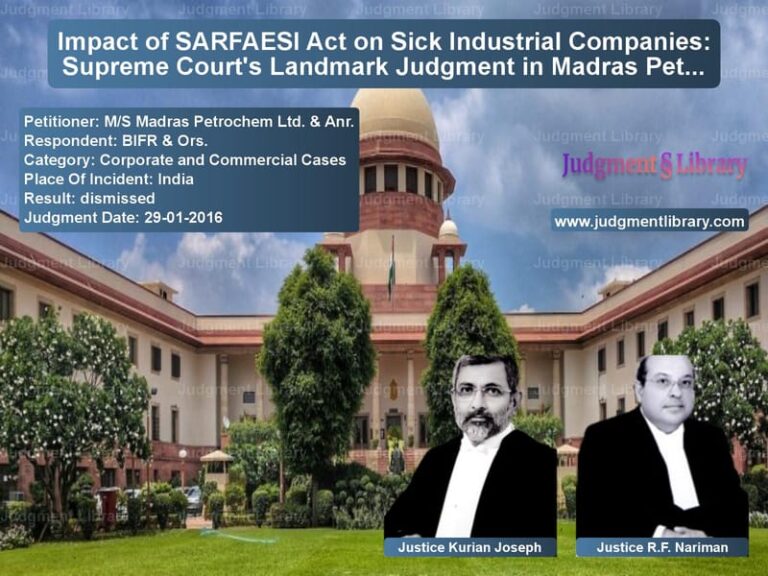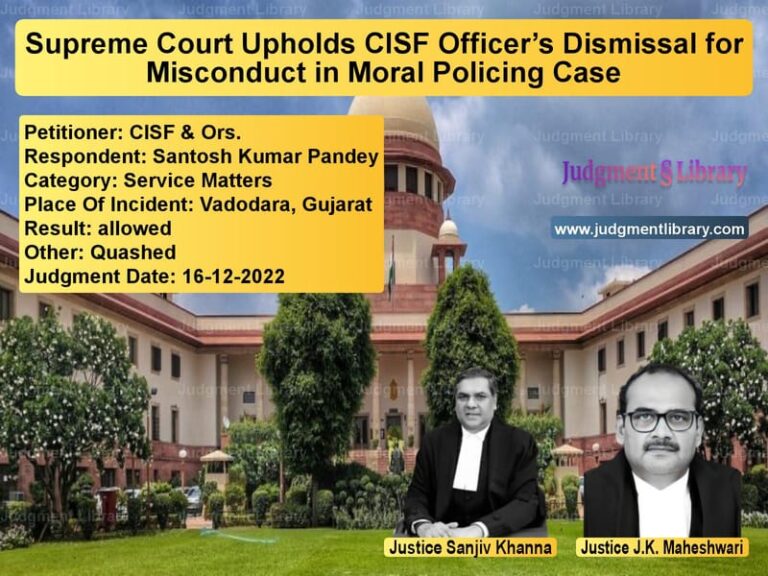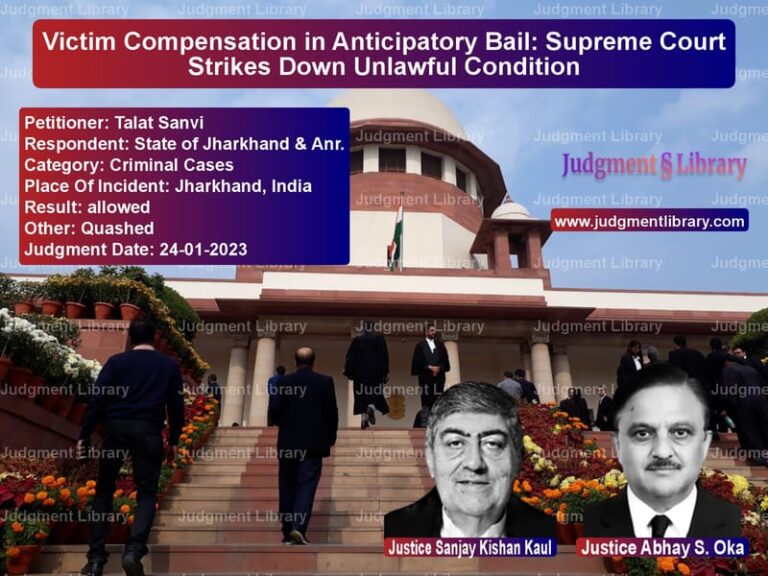Contempt Petition and Absorption of Employees in Telangana Power Utilities
This case involves a contempt petition filed by 84 petitioners, who are former employees of the Andhra Pradesh Power Utilities, alleging that their absorption into Telangana Power Utilities (TS Power Utilities) was not carried out in compliance with a Supreme Court order. The petitioners were relieved by the Andhra Pradesh Power Utilities, but despite the court’s directions, they were not absorbed by the Telangana Power Utilities as required by the final report of the One-Man Committee. The contempt petition was filed due to the alleged willful disobedience of the court’s orders by the Telangana Power Utilities. The main issue in this case revolves around the implementation of the One-Man Committee’s report and whether the actions of the Telangana Power Utilities violated the directives issued by the Supreme Court.
Background:
The petitioners were former employees of the Andhra Pradesh Power Utilities, who were to be absorbed into Telangana Power Utilities after the bifurcation of Andhra Pradesh. A One-Man Committee was set up under the chairmanship of Justice D.M. Dharmadhikari to determine the modalities for the distribution of employees between the newly formed states. The Committee submitted a report in June 2020, followed by a Concluding Report in December 2020, which outlined the allocation of 655 employees to Telangana Power Utilities. However, the petitioners claimed that despite being included in the final allocation list, they were not absorbed by the Telangana Power Utilities, leading them to file this contempt petition.
Appellant’s Arguments:
The appellant, representing Telangana Power Utilities, argued that the allocation and absorption process followed the principles outlined by the One-Man Committee, and there was no intention to disobey the court’s order. The appellant emphasized that the process had been carried out in compliance with the guidelines and that some discrepancies in the implementation arose due to the peculiar circumstances surrounding the absorption of employees. They also asserted that the employees who had already retired or reached the age of 58 were excluded from the absorption process, as per the directions in the Concluding Report.
The appellant further argued that the number of employees to be absorbed from Andhra Pradesh to Telangana had been altered due to practical constraints, including employees who had voluntarily left or were already absorbed by the Andhra Pradesh Power Utilities. They also noted that the original lists had been reviewed and updated to reflect the realities on the ground.
Respondent’s Arguments:
The respondents, representing the petitioners, contended that their names were included in the final list prepared by the One-Man Committee and that they were eligible for absorption as per the Supreme Court’s order. The respondents argued that the Telangana Power Utilities had willfully disregarded the final allocation list, arbitrarily removing the petitioners from the absorption process despite their inclusion in the list. The petitioners further claimed that the actions of the Telangana Power Utilities were a deliberate attempt to sidestep the court’s orders and that their exclusion was unjust and discriminatory.
The respondents also highlighted that none of the petitioners had reached the age of 58, and thus, they should not have been excluded from the process based on age. They emphasized that the failure to absorb them into the Telangana Power Utilities violated the Supreme Court’s clear directions and resulted in continued hardship for the petitioners.
Court’s Analysis:
The Supreme Court examined the claims made by both parties, focusing on the implementation of the Concluding Report of the One-Man Committee and the allocation lists. The Court noted that while the Telangana Power Utilities had followed the general principles outlined in the report, they had failed to absorb all the employees as per the final list approved by the Committee. The Court observed that the exclusion of employees who were listed for absorption was not justified, particularly when those employees had not reached the age limit specified in the report.
The Court also addressed the argument that the alterations to the employee allocation lists were made due to the practical realities of employee transfers. However, the Court emphasized that the allocation was final and binding, and any changes to the list should have been made only under exceptional circumstances and in compliance with the Court’s directions. The Court found that the actions of the Telangana Power Utilities in removing the petitioners from the list of absorptions amounted to willful disobedience of the Court’s orders.
Judgment:
The Supreme Court held that the Telangana Power Utilities were guilty of willful disobedience of the Court’s orders and directed them to absorb the petitioners into their respective departments. The Court also noted that the failure to implement the absorption process in a fair and transparent manner had caused undue hardship to the petitioners. The Court gave the Telangana Power Utilities a two-week period to comply with the directions and absorb all the petitioners, with salary and other benefits being provided from the date they were relieved by the Andhra Pradesh Power Utilities.
The Court further directed that the respective Telangana Power Utilities (TS Genco, TS Transco, TSNPDCL, and TSSPDCL) pay the salary and other benefits to the petitioners for the period during which they had been without work due to the non-implementation of the absorption process. The Telangana Power Utilities were also warned that failure to comply with the Court’s directions could lead to further punitive measures.
Conclusion:
This case underscores the importance of adhering to court orders and the consequences of willful disobedience. The Supreme Court’s decision highlights the need for fair treatment and transparency in the allocation and absorption of employees, especially when judicial orders have been passed to resolve disputes. The ruling ensures that employees who were unjustly excluded from the absorption process will be given their rightful place within the Telangana Power Utilities, and the actions of the Power Utilities in circumventing the Court’s orders are held accountable.
Petitioner Name: Y. Sai Satya Prasad & Ors..Respondent Name: D. Prabhakara Rao & Ors..Judgment By: Justice M. R. Shah, Justice A.S. Bopanna.Place Of Incident: New Delhi.Judgment Date: 11-10-2022.
Don’t miss out on the full details! Download the complete judgment in PDF format below and gain valuable insights instantly!
Download Judgment: y.-sai-satya-prasad-vs-d.-prabhakara-rao-&-supreme-court-of-india-judgment-dated-11-10-2022.pdf
Directly Download Judgment: Directly download this Judgment
See all petitions in Employment Disputes
See all petitions in Public Sector Employees
See all petitions in Recruitment Policies
See all petitions in Judgment by Mukeshkumar Rasikbhai Shah
See all petitions in Judgment by A. S. Bopanna
See all petitions in dismissed
See all petitions in supreme court of India judgments October 2022
See all petitions in 2022 judgments
See all posts in Service Matters Category
See all allowed petitions in Service Matters Category
See all Dismissed petitions in Service Matters Category
See all partially allowed petitions in Service Matters Category

